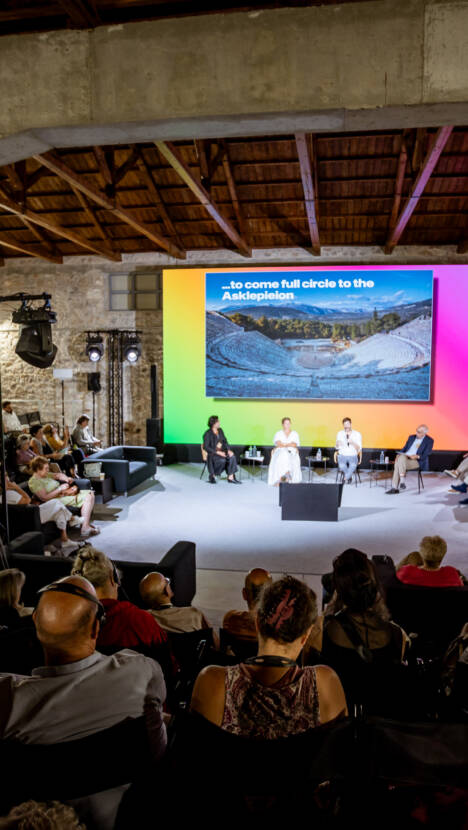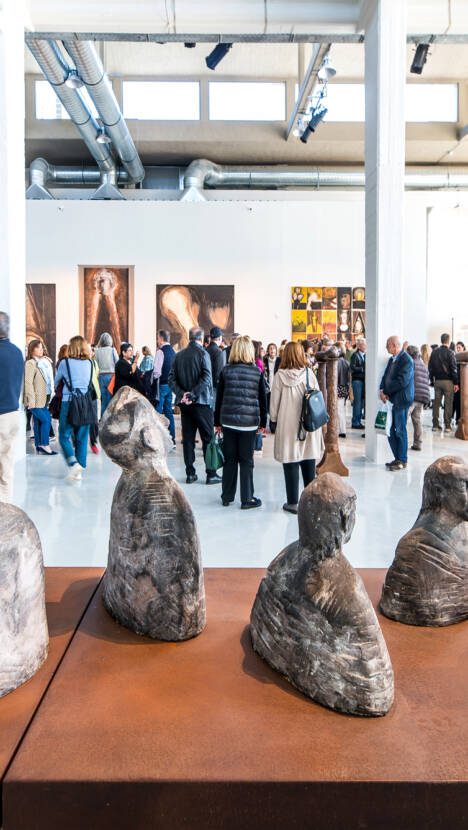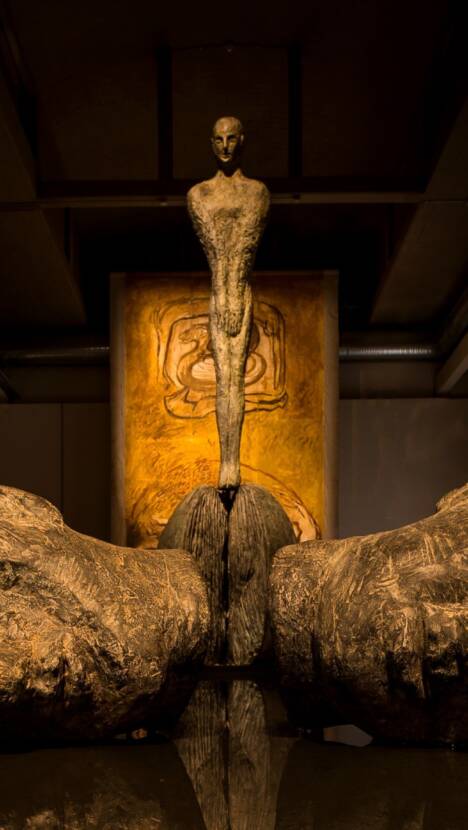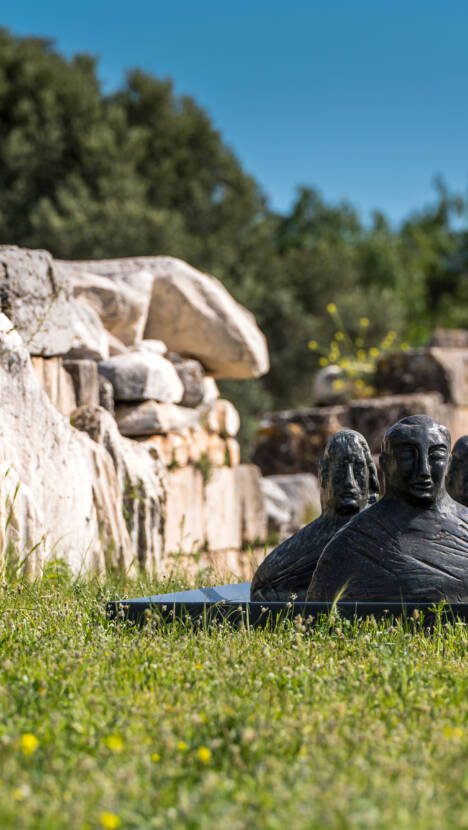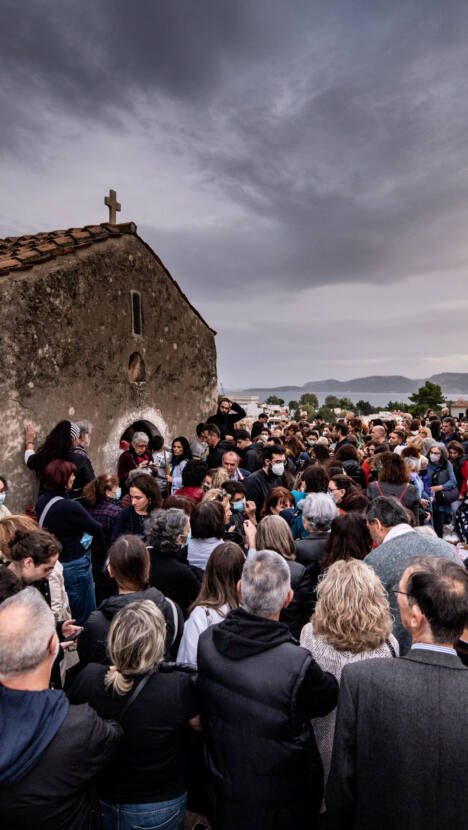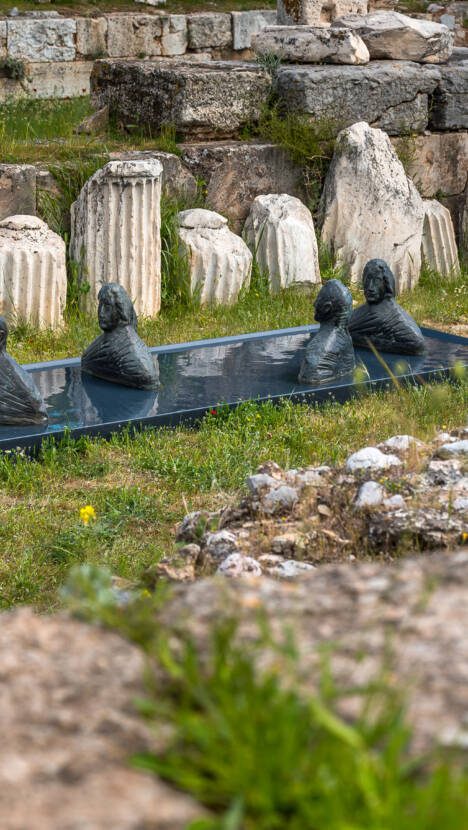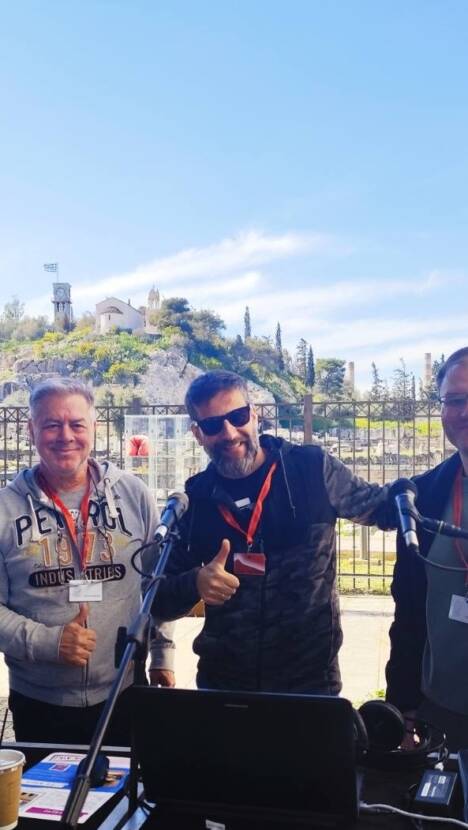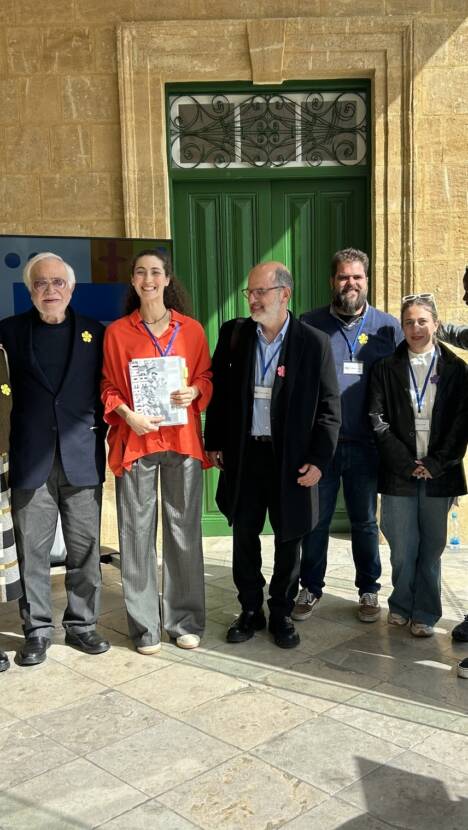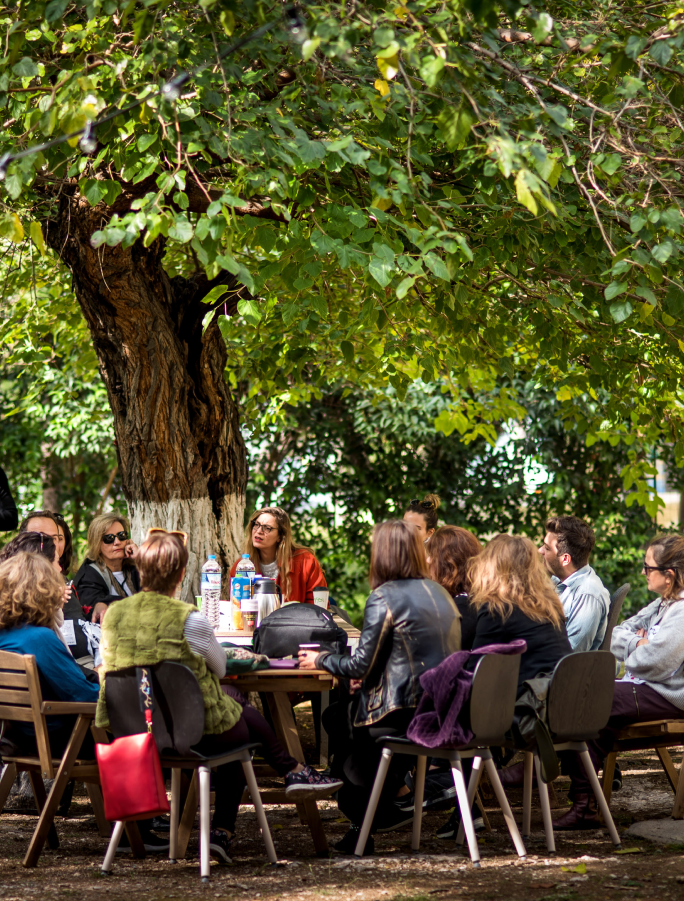The great actress and director will narrate the cornerstone of modernist poetry, the Waste Land by T. S. Eliot, in the emblematic translation of Giorgos Seferis. Eliot’s classic masterpiece will be heard in the magical setting of Elefsina, on the 100th anniversary of its publication, and at a time when “burying the dead” has once again become an everyday occurrence. The performance will be visible from the pedestrian walkway of Nikolaidou Street, and is part of the Europe Day celebrations, co-organized on the same day by 2023 Eleusis European Capital of Culture in collaboration with the Office of the European Parliament and the Representative of the European Commission in Greece.
Director’s note
Due to his major contributions to poetry, literary criticism, prose and drama, many critics consider Thomas Sterns Eliot (1888-1965) one of the most influential writers of the 20th century. Waste Land can arguably be sited as his seminal poetic landmark work.
When T. S. Eliot first published this complex poem in 1922 in three versions, almost simultaneously—the first one in his own literary magazine Criterion, then in the more widely circulated American literary magazine Dial, and a month later via the publishing house Hogarth Press, run by Virginia Woolf and her husband Leonard—this set off a storm of criticism in the literary world. The short compositional poem, which is articulated in five parts, with 433 lines, was considered and remains one of the definitive and most emblematic poems of modernism, while, at the same time, it is also considered as the most important text of 20th century Anglo-Saxon literature.
In Waste Land, Eliot functions as the melting pot of modernism. Ezra Pound (to whom the poem is dedicated, as he was also its editor) saw Waste Land as the justification of the modernist movement and its experimentation post-1900. In place of a traditional work, with unified themes and a coherent structure, Eliot’s epigrammatic, almost aphoristic, style in Waste Land, as well as the rich intertextual horizon that takes the form of quotations, created a poem that seemed to incorporate many unrelated or little-known references to history, world religion, and interrelated mythological themes. Parts of the poem are written in different languages, even in Hindi. In fact, the poem is so complex that Eliot himself felt the need to include extensive notes identifying the sources he was referring to, something that was highly unusual for a poet. This move caused some critics to claim that Eliot was trying to be deliberately obscure or that his work was an elaborate literary joke. However, while the poem is dramatic, critics have identified several sources that inspired its creation and which have helped to define its meaning.
Satire or Prophecy? Or a reflection of Eliot’s disillusionment with the moral decline of Europe after World War I?
“Clock Tower Voices” started in October 2020 with Kariofillia Karampeti bringing to life Persephone by Yiannis Ritsos, directed by Michail Marmarinos, and continued in May 2021, with Giannis Vogiatzis performing excerpts from the revolutionary text of the Hellenic Nomarchy by Anonymous the Greek, directed by Viktor Adrittis, and Lydia Koniordou narrating Iera Odos by Aggelos Sikelianos, in November of the same year.
Clock Tower Voices, a series of original audio performances comprising readings and interpretations of landmark texts of Greek literature by distinguished artists, mark Mystery 2 | Clock Tower Voices,organized by 2023 Eleusis European Capital of Culture.The performance that has now acquired a character of regular periodicity, and has the ultimate goal of becoming a permanent reoccurring celebration for the city. The activation of the landmark of the Clock, both symbolically and literally, places the action at the heart of Elefsina, while the pedestrian walkway next to the archaeological site functions as a place of public meeting for residents and visitors, the spectators of the action.

